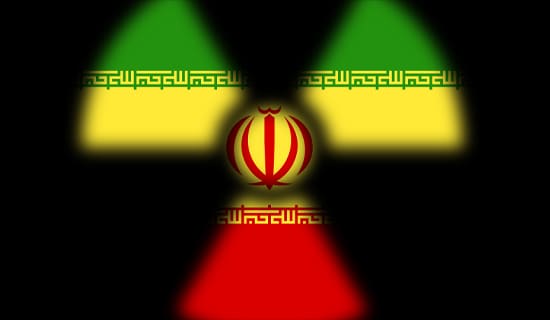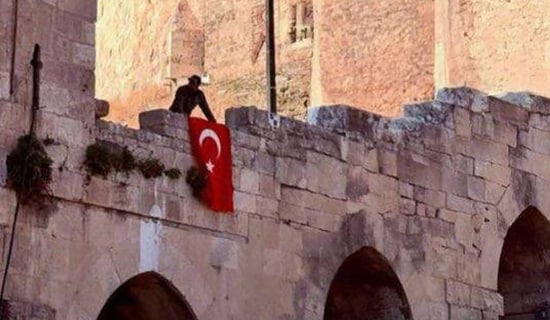Ruslan Mamedov, the program coordination at the Russian International Affairs Council, and the coauthor of the book The Army and Security in the Middle East and North Africa wrote an analysis for Kommersant about the week-long Russian-Egyptian naval exercises, codenamed Bridge of Friendship, that started on November 17, 2020. The exercises took place in the Black Sea, and to get there the Egyptian naval squadron had to pass through the Turkish straits on the way to the Russian port of Novorossiysk, which served as the hub of the exercises. Mamedov's piece was therefore titled "Bridge Over the Bosporus."
Russia and Egypt have been conducting joint maneuvers for several years in a row. The first "Bridge of Friendship" took place in the Mediterranean in June 2015. In November 2019, the Arrow of Friendship-2019 maneuvers of the military air defense forces of the two countries took place, and a little earlier, in Russia, the Russian Airborne Forces instructed Egyptian paratroopers on tactical airborne assault doctrine as part forces on the Defenders of Friendship-2019 maneuvers.[1]
This year's exercises took place in the context of tension between Russia and Turkey and Egypt and Turkey and therefore the Egyptian Navy's entry into the Bosporus for the first time attracted attention. Some Russian military experts commented " Unnamed Russian military experts predicted that the naval exercises "should sober up some hotheads in Turkey, who suddenly remembered the imperial ambitions of their country. Cairo has disagreements with the Turkish leadership over the situation in Libya, and Moscow assumed responsibility for resolving the conflict in Nagorno-Karabakh, in which the Turks did not hesitate to intervene."[2] Mamedov concurs with this rationale but qualifies it by adding that Russia, while firing a shot across the Turkish bow is still intent on pursuing cooperation with Ankara. Mamedov's article follows below:[3]

Friendship Bridge logo featuring the flags of Russia and Egypt (Source: Eadaily.com)
"The weekly Russian-Egyptian naval exercise 'Friendship Bridge-2020 started today in Novorossiysk. [It is an] historical event: never before have Egyptian ships entered the Black Sea. Against the background of events in the Middle East and neighboring regions (in the Mediterranean and the Caucasus) the exercises were perceived as a 'signal to Ankara.'
"In order to take part in the naval exercises, Egyptian ships passed through the Bosporus and the Dardanelles. Egyptian observers note that for Cairo, the entry of its ships into the Black Sea, into the Turkish zone of influence, is a chance to demonstrate to Ankara that it should reckon with the opinions of other countries. The traditional rivalry between Ankara and Cairo has turned recently into outright enmity. Egypt is especially dissatisfied with Ankara's actions in Libya, where the Turks supported the government in Tripoli and signed two treaties without the participation of other countries of the region (one of the treaties regulates the demarcation of maritime borders in the Mediterranean).
"Considering Cairo's support of Khalifa Haftar, commander of the Libyan National Army, many of Ankara's actions in the Libyan conflict are perceived as colonialistic and hostile. Statements are made from the League of Arab States' headquarters in Cairo that Turkey's occupation of Syrian (and therefore Arab) territories is unacceptable. The complex mosaic of Eastern Mediterranean competition, coupled with energy issues, puts Egypt and Turkey on opposite sides on almost every issue.
"It is no wonder that against this background, the Russian-Egyptian naval exercises are perceived by many as a signal to Ankara, especially since Russia has something to reproach Turkey for too, albeit implicitly.
"However, it should be noted that Russia is trying to maintain a neutral position in the Middle East and maintains contacts with all players. Judging by the very same Libya issue, it can be seen that Moscow considers Cairo's interests, but at the same time actively works together with Turkey. Additionally, the exercises were planned beforehand, the current political situation notwithstanding, and their preparation was discussed by the parties for a long time. And the reality of the Russian-Egyptian exercises themselves has long become customary. Thus, the first “Bridge of Friendship” naval exercises were held in 2015 in the Mediterranean Sea off the coast of Egypt. The Russian and Egyptian militaries have since then only increased their level of cooperation. One of the latest events was the “Arrow of Friendship-2019” exercise of air defense units in Egypt.
"The naval exercises of Russia and Egypt are aimed at 'strengthening and developing cooperation' between the two countries in the field of security and in the 'exchange of experience between military personnel in the prevention of various threats in areas of intensive shipping routes'. On the whole, this approach offers a serious basis for the bilateral agenda of Moscow and Cairo, whose views on international politics largely coincide, as do their zones of interest.
"One of the latest examples is Sudan, where Moscow intends to create a logistics center for the Russian Navy. At the same time, Egypt and Sudan also began to develop bilateral military cooperation: while the Egyptian ships were sent to the Black Sea [for naval exercises], the Egyptian army conducted the joint military exercises "Nile Eagles-1" with Sudan.[4]
"But Moscow and Cairo’s motives are naturally different. While Egypt strives to develop a common position with Sudan to counter Ethiopia in the disputes over the Grand Ethiopian Renaissance Dam, Moscow is establishing its presence in a strategically and logistically important region with access to the World Ocean, through which major trade routes pass. While on the one hand, concentrating attention on the Middle East, Moscow is also turning its attention to the African continent. The Egyptian-Russian exercise is another step in this direction..."

Ruslan Mamedov (Source: Russiancouncil.ru)
[1] Rg.ru, November 16, 2020.
[2] Rg.ru, November 16, 2020.
[3] Kommersant.ru, November 17, 2020.
[4] See MEMRI Special Dispatch No. 9051, Russian Military Expert Sivkov: New Red Sea Base In Sudan Allows Russia To 'Influence The Course Of The Political Process' In The Indian Ocean, The Red Sea, The Persian Gulf And In Northeast Africa, November 23, 2020.








